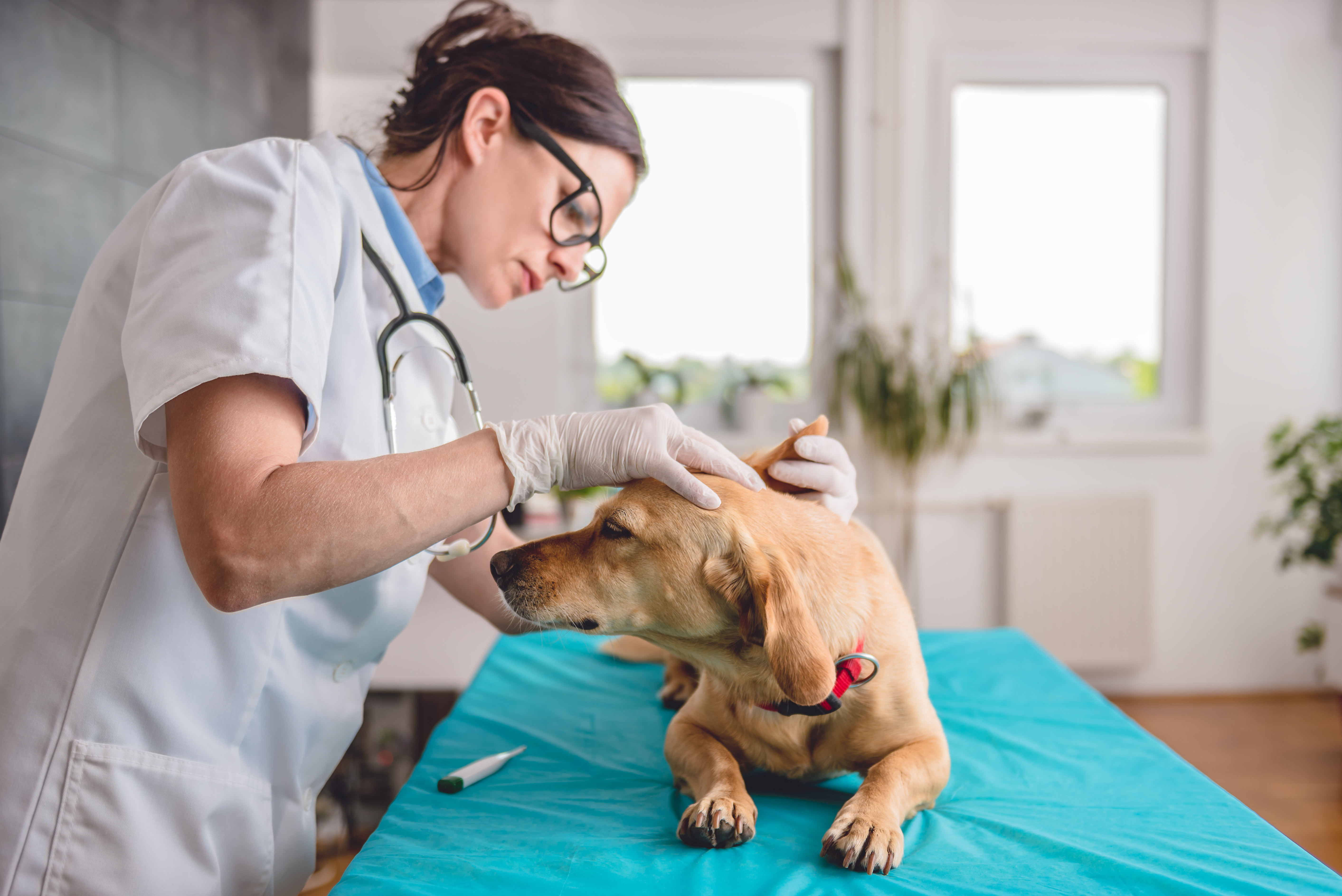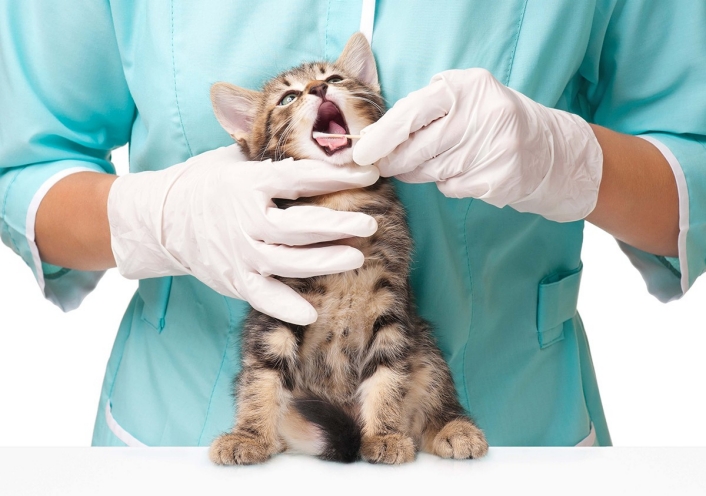Keep Your Pet Safe with Routine Pet Vaccinations from a Trusted Veterinarian
Keep Your Pet Safe with Routine Pet Vaccinations from a Trusted Veterinarian
Blog Article
Inoculation Guidelines From Your Relied On Vet
Inoculation standards given by your trusted veterinarian play an important role in securing your animal's health and health. Core vaccinations are basic for all animals, while non-core vaccinations can be tailored to ecological exposures and details way of lives. Comprehending the nuances of inoculation routines, which start as very early as six to eight weeks, is necessary for ideal defense. In addition, resolving typical misunderstandings bordering vaccinations can further improve pet dog owners' self-confidence in these safety nets. As we discover these important aspects, it ends up being increasingly clear why normal assessments with your vet are indispensable for informed decision-making.

Importance of Inoculations
Vaccinations play an essential function in protecting pet dogs against a variety of avoidable diseases. By promoting the body immune system to acknowledge and combat certain virus, vaccinations dramatically reduce the incidence of contagious diseases that can influence a pet's health and long life. Not only do vaccinations secure specific animals, yet they likewise add to herd immunity, therefore decreasing the general prevalence of illness in the family pet populace.
Timely inoculations assist to minimize the spread of conditions such as rabies, parvovirus, and distemper, which can have serious effects for both human beings and pets. Additionally, vaccinations are frequently a demand for boarding facilities, grooming solutions, and canine parks, making them vital for those that wish to mingle their pet dogs.

Core Injections for Pet Dogs
While the specific inoculation requirements of pet dogs can differ based on individual variables, core vaccines are globally recommended to secure versus one of the most typical and serious conditions (Pet Health Checkup). Core injections are those regarded essential for all family pets, regardless of their way of living or geographical area, as they guard versus potentially deadly and very contagious diseases
For canines, the core vaccinations include those for canine distemper, parvovirus, adenovirus (hepatitis), and rabies. Adenovirus can result in liver illness, while rabies is a zoonotic disease that postures a risk to both animals and people.
In felines, core injections incorporate feline panleukopenia, feline calicivirus, feline herpesvirus (rhinotracheitis), and rabies. Feline panleukopenia is a very transmittable viral illness that affects the body immune system and intestinal tracts. Calicivirus and herpesvirus are major factors to top breathing infections in pet cats, while rabies remains an important issue for public health and wellness.
Seek advice from your vet to ensure your pets receive their core inoculations on routine.
Non-Core Vaccines Explained
Non-core vaccinations are tailored to attend to certain risks related to a pet's setting, exposure, and way of living to specific illness. Unlike core injections, which are widely suggested for all animals, non-core vaccines are considered based on specific conditions. These vaccinations are specifically crucial for family pets that might run into distinct microorganisms because of their geographical place, travel routines, visit or tasks.
Examples of non-core injections consist of those for Bordetella bronchiseptica, which is linked to kennel cough, and Lyme disease, created by ticks. Pets that often engage with other pets, such as those in boarding facilities, canine parks, or grooming atmospheres, may take advantage of Bordetella inoculation. If you live in a location where Lyme condition is widespread, vaccinating against this condition can be a prudent option for outdoor-loving dogs.
Other non-core injections may consist of those for leptospirosis, canine flu, and feline leukemia, depending on the details risk elements existing. It is necessary to have a detailed conversation with your veterinarian concerning your pet's way of life and the prospective need for these vaccines, guaranteeing a tailored inoculation approach that finest protects your fuzzy good friend.
Inoculation Schedule Review

As family pets develop, it is essential to comply with the recommended booster vaccinations. my sources Vet Enterprise. For adult animals, core vaccinations are normally provided each to 3 years, depending on the particular vaccine and neighborhood regulations. Non-core vaccines might be recommended based upon way of living variables and regional condition occurrence, demanding a customized approach
Normal veterinary examinations are important for updating vaccination schedules. Your vet can give support on the most proper immunizations for your family pet, factoring in age, health and wellness status, and ecological dangers. By remaining positive and educated, animal owners can guarantee their hairy buddies obtain prompt and effective vaccinations, thereby guarding their health and wellness throughout their lives.
Usual Misconceptions About Injections
Misunderstandings about pet inoculations can lead to confusion and hesitation amongst animal proprietors concerning the immunization procedure. One widespread myth is that vaccines are unnecessary for interior pet dogs. While it holds true that indoor family pets encounter reduced dangers, they are not entirely immune to diseases, as pathogens can be introduced via various means, including human garments and various other pets.
Another false impression is that vaccines can trigger the illness they aim to stop. In fact, many injections consist of inactivated or attenuated pathogens, which can not cause condition in healthy and balanced pets. Some pet dog proprietors also believe that their pet dogs must not be vaccinated if they are already healthy; nevertheless, vaccinations are a proactive measure that helps prevent the onset of illness.
In addition, many family pet owners are afraid that vaccinations will lead to long-lasting health issues. The advantages of inoculation-- safeguarding animals from possibly deadly illness-- much outweigh the dangers.
Verdict
In recap, adherence to vaccination standards is critical for making sure the health and wellness and durability of pets. Eliminating common myths bordering inoculations further strengthens the importance of notified decision-making in pet dog care.
Not just do vaccinations safeguard specific animals, yet they also add to herd resistance, thus lowering the general frequency of conditions in the animal populace.
Misconceptions concerning pet vaccinations site can lead to complication and hesitation amongst animal proprietors regarding the immunization process. While it's real that interior pets deal with reduced risks, they are not completely immune to diseases, as pathogens can be introduced via different ways, consisting of human apparel and other pets.
Some family pet proprietors additionally think that their pets should not be vaccinated if they are already healthy; nevertheless, inoculations are an aggressive measure that helps avoid the beginning of health problem.
The benefits of vaccination-- securing family pets from possibly life-threatening diseases-- far exceed the dangers.
Report this page